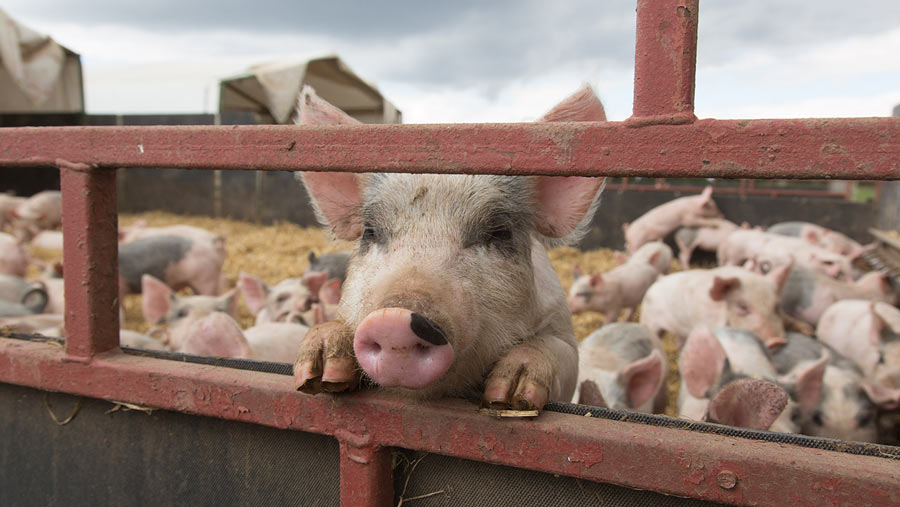New animal health review wants pig farmers for ‘soft launch’
 © Tim Scrivener
© Tim Scrivener Pig producers are being invited to form the first test group of the Annual Health and Welfare Review, part of the Animal Health and Welfare Pathway.
The review is the recipient of the first of four pots of funding under the Animal Health and Welfare Pathway, which aims to reward farmers for delivering public goods.
See also: Farmers to be paid for delivery of better animal welfare
Stewart Houston, pig sector lead and non-executive member of the Animal Health and Welfare Board for England, said it had been hoped the review would be launched at the Pig and Poultry Fair.
However, in light of current challenges faced by the sector, a “soft” launch of 500 farmers would instead begin this summer, followed by further commercial testing later in the year.
What is it?
The Annual Health and Welfare Review will cover funding for a vet or a vet-led team to visit a farm and carry out a yearly review of animal health and welfare. Christine Middlemiss, the UK chief veterinary officer, says this is designed to enable producers and vets to “carve out time” to spend together, discussing what specific health and welfare challenges need tackling.
Pig farmers will be paid £684 for each review, which will cover both vet and farmer time, as well as the testing and sampling of endemic diseases, she says.
What does the review cover?
The review is expected to take two to three hours and will look at health and welfare challenges specific to the farm. The vet will then prepare a report containing recommendations and actions that have been agreed with the farmer.
The review will also include testing for endemic diseases, in a bid to gain a greater understanding of national and regional disease pressures.
Porcine reproductive and respiratory syndrome (PRRS), an “iceberg” endemic disease, is a major focus of the review.
The disease is estimated to cost the industry more than £50m a year, and the aim is first to control it and then to eradicate it.
What happens to the data?
Following a farm visit, anonymised information will be submitted to Defra, including the results of diagnostic testing. This will be uploaded to a portal hosted by the Rural Payments Agency.
Martin Jenkins, Defra policy lead, stresses that the information will not be used as part of farm inspections, and the majority of information will be kept between the vet and the farmer.
Who can apply?
At present, the review is open only to producers who claim support from the Basic Payment Scheme and have a minimum of 50 pigs.
How to apply
To confirm interest or submit any queries, contact Paul Adesanya at paul.adesanya@defra.gov.uk or Laura McCormick at laura.mccormick@defra.gov.uk
What is PRRS?
Porcine reproductive and respiratory syndrome (PRRS) is a virus that causes reproductive failure in sows. It can also cause respiratory problems throughout the pig life cycle, from weaning to finishing.
Clinical signs include weight loss, fever, reduction in appetite and laboured breathing. PRRS can also cause mummified foetuses, premature farrowing and stillbirths.
The virus is often introduced via replacement pigs or other vectors such as flies and slurry. It can be windborne over short distances. Once present in a herd, it can be transmitted further in several ways including nose-to-nose contact and from a sow to a piglet during pregnancy.
If left unresolved, PRRS can negatively impact production and lead to greater piglet mortality.
Source: AHDB
